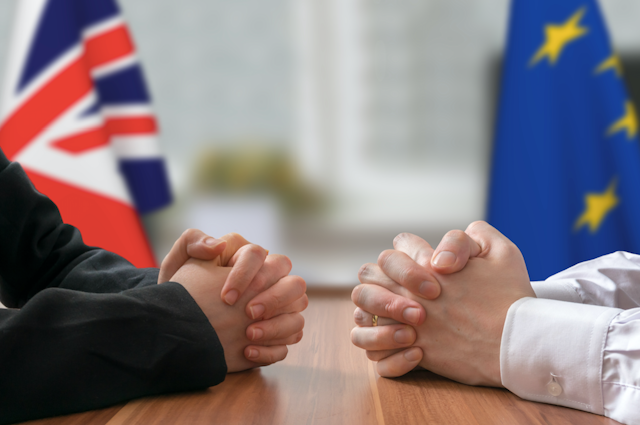The spectrum of responses to the news that Ivan Rogers had resigned as the UK’s permanent representative to the EU neatly represents the political climate in Britain since the EU referendum. Nigel Farage welcomed his departure while Nick Clegg called Rogers’ loss a “spectacular own goal” on the part of the government. The war of words that has raged between Remain and Leave campaigners since the June vote shows no sign of abating.
The announcement of a resignation or the removal of a British diplomat does not normally lead the news. Exceptions in the last decade include the resignation of Craig Murray, the UK’s ambassador to Uzbekistan in 2004 and the resignations of Foreign Office lawyer Elisabeth Wilmshurst and diplomat Carne Ross over decisions made during the 2002 Iraq War.
Rogers’ resignation follows a different storyline. It is another scene in what is becoming Britain’s Brexit diplomacy pantomime. It’s a storyline that has more in common with fairytales than the conduct of modern diplomacy, to say nothing of the name calling. Brexit is reducing a crucial moment in post-war foreign policy to farce.

Ever since Rogers’ comments about post-Brexit trade negotiations being a decade-long task were leaked to the BBC, he has come under public attack. He was targeted by former leading members of the EU Leave campaign for his apparent europhilia and his impartiality has been questioned.
Farcically, the Rogers leak had come just days after the cabinet secretary, Jeremy Heywood, wrote to civil servants warning that the leaking of information about Brexit preparations must end. That memo was itself also leaked.
Kim Darroch, the UK’s ambassador to the US, faced similar criticism last year when his reports to London on how the UK should approach the incoming Trump administration were leaked to the press. In the aftermath of a visit by Farage to the president-elect (and compounded by Trump suggesting that the UKIP MEP would make a good ambassador) Darroch came in for extended public criticism. He was accused of being ineffectual and, again, a europhile.
Now with Rogers, there is yet another opportunity to rehearse Brexit dividing lines. For former Remain campaigners (reborn in organisations like Open Britain) his departure is further evidence that the current government is pursuing a policy which runs counter to good sense (hence the resignation of a dedicated public servant). For former Leave campaigners, organised through groups such as Leave means Leave, and who have transmogrified into a lobby for a hard Brexit, the resignation provides an opportunity to appoint an ambassador to the EU who is unequivocally committed to Brexit.
The focus on the UK’s diplomatic representatives is a proxy war over what should be the UK’s negotiating ambitions for Brexit: to retain as close as possible relationship or seek the greatest degree of detachment.
Rogers’ successor should certainly not be a political appointment. Extensive European Union negotiating expertise will need to be the key attribute of the new UK ambassador to the EU. The prime minister and the UK government will be best served by expert knowledge on how to negotiate successfully with the EU. In short, it needs an experienced diplomat with very much the same career profile as Rogers.
Britain’s diplomacy is well-regarded by third countries and especially respected for being unencumbered by political interference. The UK is, however, also being discussed in foreign policy circles as less internationally significant since the EU referendum vote.
Making the UK’s diplomatic representatives the subject of public debate distracts from the major challenge ahead. The country needs to chart a new direction for its foreign policy post-Brexit and the clock is ticking. Refocusing on the key issues and objectives for the UK’s diplomacy should be the priority, not arguing over the suitability of the diplomatic players.

